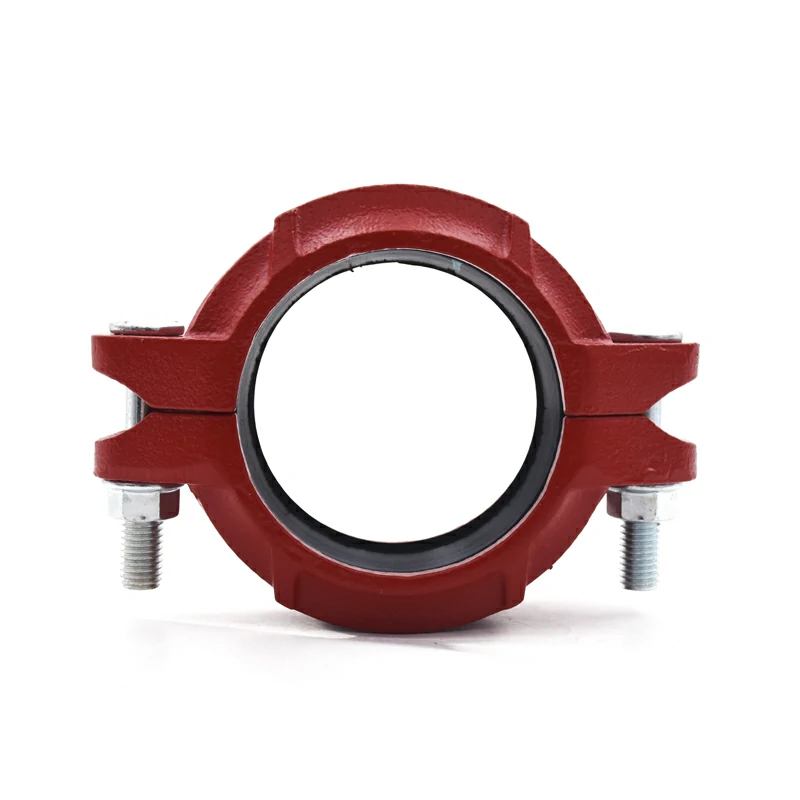YINUO, a reputable grooved rigid coupling factory based in China, is dedicated to providing high-quality coupling solutions for various industries. With expertise in producing both rigid and flexible couplings, YINUO offers a versatile range of products to meet different application needs. Today, we will explore rigid coupling vs flexible coupling, how each features and benefits:

Rigid Coupling: Stability and Strength
Couplings rigid, as the name suggests, are designed to provide a rigid connection between two shafts or components. They are known for their stability, strength, and ability to transmit torque efficiently. Here are some key features and advantages of rigid couplings:
Load Transmission: Rigid couplings excel in transmitting high torque loads between shafts, making them suitable for applications that require precise power transmission, such as heavy machinery, pumps, and industrial equipment.
Alignment Maintenance: Rigid couplings help maintain precise alignment between the shafts, ensuring smooth operation and minimizing wear and tear on connected components. This is especially important in applications that demand accurate alignment to prevent damage and enhance the overall efficiency of the system.
Torsional Rigidity: Rigid couplings offer excellent torsional rigidity, minimizing shaft deflection and maintaining the integrity of rotating equipment. This is particularly advantageous in applications where precise positioning and stability are crucial.
Flexible Coupling: Misalignment Compensation and Vibration Dampening
Flexible couplings are designed to accommodate misalignment between shafts while transmitting torque. They offer several benefits over rigid couplings, making them suitable for diverse applications. Here are some key features and advantages of flexible couplings:
Misalignment Compensation: Flexible couplings can compensate for angular, parallel, and axial misalignments between shafts. This ability to accommodate misalignment helps reduce stress on connected components, prolonging their lifespan and minimizing the risk of premature failure.
Vibration Dampening: Flexible couplings absorb and dampen vibrations, reducing the transmission of shocks and vibrations from one component to another. This is particularly beneficial in applications where vibration isolation is critical, such as in pumps, motors, and precision machinery.
Torsional Compliance: Flexible couplings offer torsional compliance, allowing for slight bending or flexing during operation. This feature helps protect delicate or sensitive equipment from excessive torque, shock loads, and torsional vibrations.
Choosing the Right Coupling Solution
Selecting the appropriate coupling solution depends on various factors such as the application requirements, system characteristics, and operational conditions. Here are some considerations to help you make an informed decision:
Torque Transmission: If your application demands high torque transmission with minimal misalignment, a rigid coupling may be the ideal choice. It ensures precise power transfer and maintains shaft alignment.
Misalignment Compensation and Vibration Dampening: For applications where misalignment compensation, vibration dampening, and shock absorption are critical, a flexible coupling is recommended. It accommodates misalignment, reduces vibration transmission, and protects sensitive equipment.
YINUO, a trusted grooved rigid coupling factory in China, offers a comprehensive range of coupling solutions. Understanding the characteristics and advantages of both rigid and flexible couplings is crucial in selecting the right solution for your specific application. Contact YINUO today to explore their high-quality coupling products and find the perfect fit for your industry needs.
